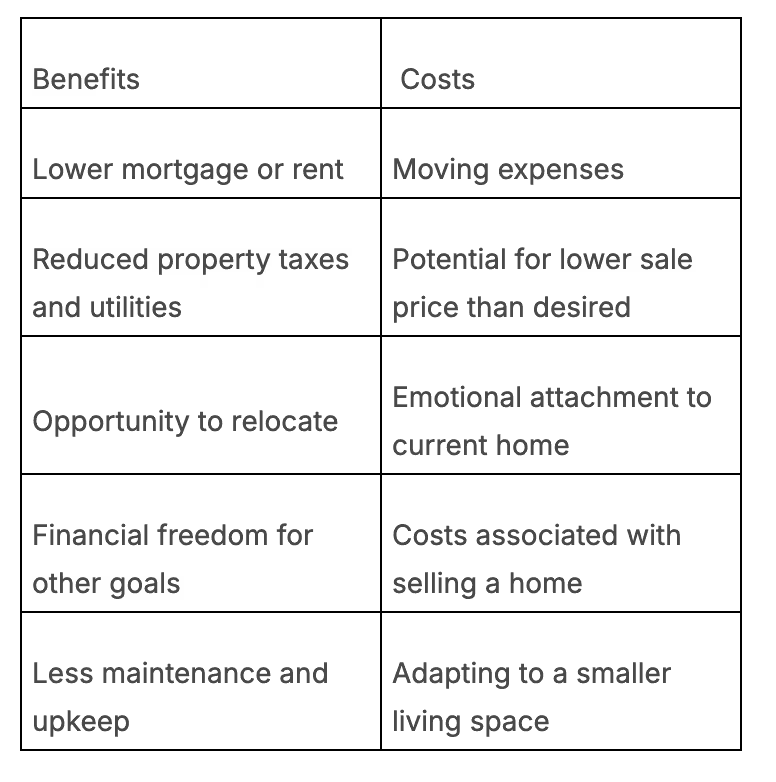Services
Storage
Locations We Serve
Clients We Serve
Resources


The choices homeowners make are changing. Now, many people are choosing to downsize. This means they prefer smaller homes over larger homes. This shift helps them adapt to new lifestyles and economic changes. It shows that their priorities are different, especially during uncertain times.
The year 2025 looks like it will see a big increase in downsizing. What used to be a small choice is now becoming very common. There are many reasons for this trend. One reason is changes in the stock market, which make homeowners more careful with their money.
In recent times, the ups and downs in the economy make planning finances even harder. In this situation, downsizing can be a good way to use home equity, lessen mortgage stress, and get better financial security. This option is especially appealing for people who are getting close to retirement or dealing with money worries.
The increase in downsizing is not just a short-term trend. It is a response to many factors that change how people think about owning a home.
First, we live in a time with lots of information. This helps people make better choices. Data from the US Census Bureau shows that more people want to live in smaller spaces.
Second, the money benefits of downsizing are hard to overlook. Many homeowners in larger homes face high costs. They deal with big mortgages, property taxes, and maintenance expenses.
Finally, changes in society also affect this shift. People want more flexibility, care about the environment, and are moving away from large homes, often called "McMansions." This is why more individuals are choosing to downsize and consider smaller living options.
Economic changes are greatly affecting how homeowners make choices. Many people are seeing downsizing as a good option. The ups and downs of the stock market, along with global uncertainties, have made folks more careful with their money.
Interest rates also play a big role in what people can afford when buying homes. Recently, these rates have gone up and down, making buyers rethink their plans. In this situation, choosing a smaller home with a lower mortgage can bring some financial peace of mind.
Plus, the rising cost of living means many families are working with smaller budgets. Downsizing can help save money. This allows people to spend more on important needs or achieve personal goals.

Examining demographic insights helps us understand why downsizing happens. Data from the US Census Bureau shows clear trends and reasons for this. As people get older, their housing needs change.
For example, empty nesters tend to think about their need for a big family home after their kids move out. They often want a smaller, easier-to maintain place, making downsizing a smart choice.
Certain age groups are leading the downsizing trend and changing what we see today. In the Americas, Baby Boomers make up a large part of downsizers. As they move into retirement, their focus shifts toward being financially secure, traveling, and enjoying their time.
At the same time, the sharing economy reduces the demand for large private spaces. Younger people, who are used to ridesharing, shared workspaces, and quick services, are more willing to live in smaller homes that fit their way of life.
This mix of different age groups’ preferences is a strong influence in the real estate market. It shows a growing interest in homes that are just the right size, in good locations, and filled with useful amenities.
Downsizing affects different generations in different ways. It changes how people live based on their age. For older Americans, downsizing helps them get cash from their homes. This gives them financial security in retirement.
Younger people, who often have student loans and struggle to find jobs, see downsizing as a chance to buy a home. It lets them move to a better area without high costs.
This change among generations impacts the real estate market. It affects housing demand, neighborhood types, and city planning.
Downsizing has big financial effects that homeowners need to think about. When people move to a smaller and usually cheaper home, they want to cut down on their housing costs. This change can mean lower mortgage payments, smaller property taxes, and less money spent on utilities.
Moving to a smaller home can also help homeowners free up money. They can use this money for retirement savings, travel, or other money goals. Knowing these effects is important when looking at the good and bad sides of downsizing.
Making informed homeowner decisions requires a careful cost-benefit analysis of downsizing. While downsizing may seem straightforward, weighing both financial and emotional factors is essential before making the transition.
It's crucial to consider individual circumstances, financial goals, and lifestyle preferences when assessing whether the benefits of downsizing outweigh the potential drawbacks.

Downsizing can greatly affect your long-term financial health. When you lower your monthly housing costs, you can save more money for future needs or investments.
At first, downsizing might need some money for selling your old home or fixing up a new one. However, the savings from lower living costs can be worth it in the long run.
A smaller home usually needs less maintenance. This means you will spend less on repairs, yard work, and managing your property. In tough economic times, having extra money gives you peace of mind.
William C. Huff specializes in downsizing families effortlessly. With a trained team and expert knowledge, they navigate the downsizing process seamlessly. Using big data and insights into demographics, they tailor solutions to meet individual needs. From baby boomers to Gen X, William C. Huff understands the unique challenges each generation faces when downsizing. By analyzing financial implications and market trends, they provide comprehensive support for a smooth transition. As downsizing continues to trend upwards, William C. Huff remains at the forefront, helping families transition to a more manageable and cost-effective lifestyle. With their expertise, downsizing becomes a stress-free and beneficial decision for families across America.
The main reasons people decide to downsize in 2025 are money management, cheaper housing costs, and wanting a living space that is easier to handle.
Whether you're preparing for a move, exploring secure storage options, or just need expert advice, our team is here to help.


William C. Huff Companies is committed to simplifying the complicated maze of moving and storing your priceless possessions. With over 40 full-time, tenured, and highly trained staff, you can be assured that your move will be handled smoothly and professionally, from the first phone call until the last box is unpacked.